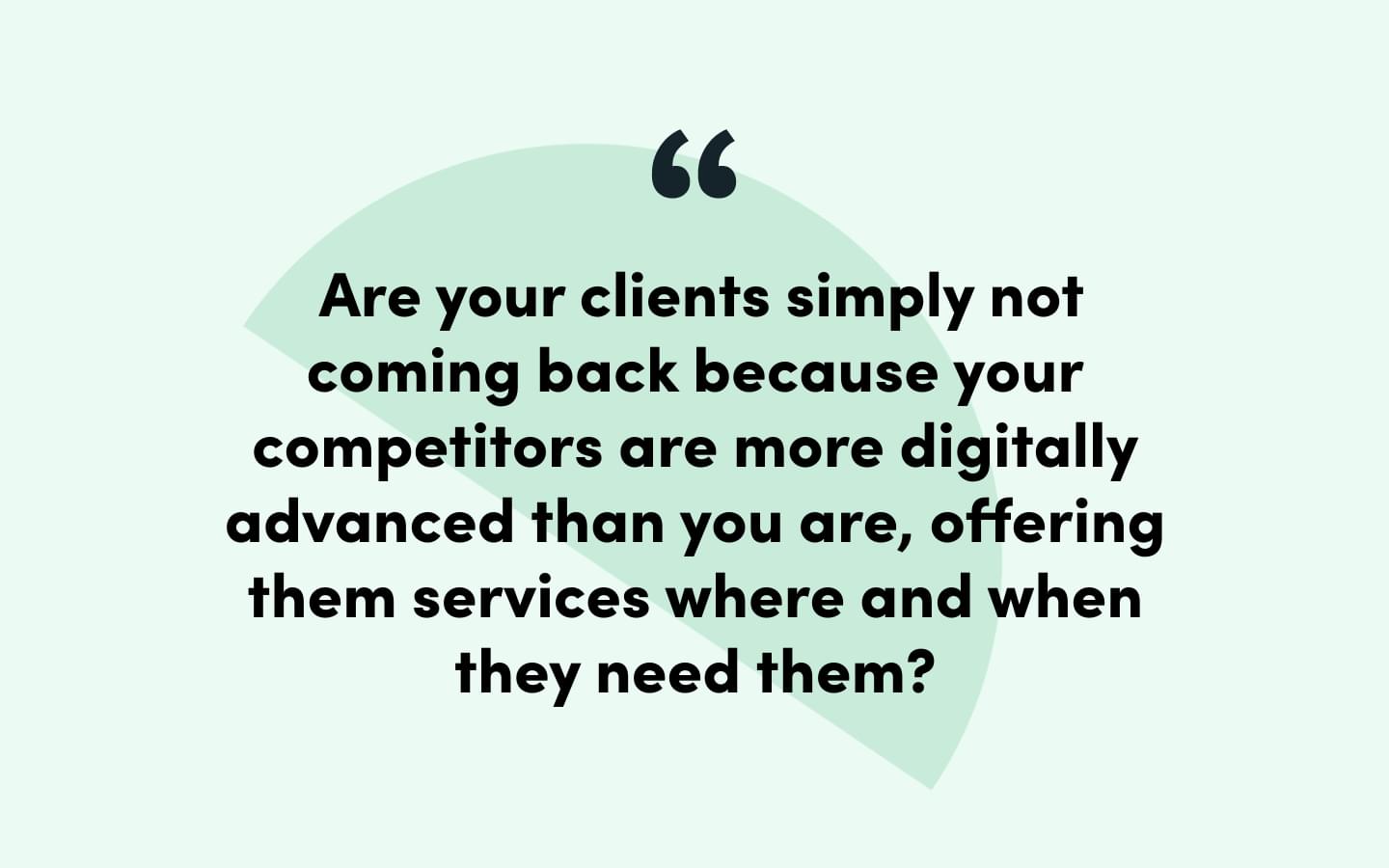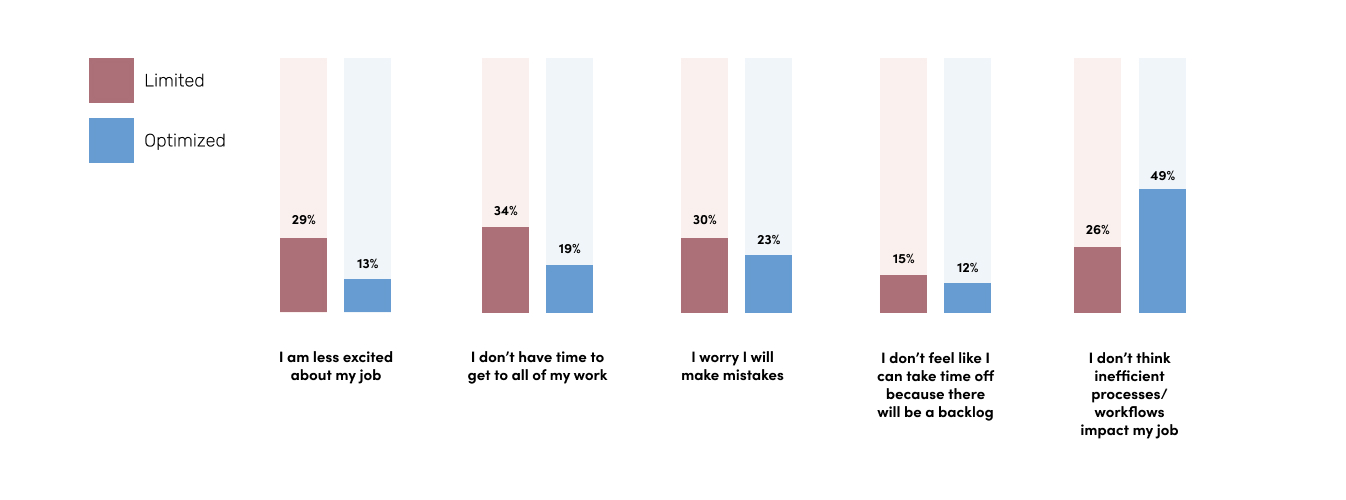Being more efficient today leads toward better productivity tomorrow. And the more productive you, your employees, and your entire organization are, the more time you have for customers, searching out new market opportunities, and working on impactful projects that move the needle.
But what does an efficient organization look like? Imagine a world where every piece of technology your company uses not only allows your employees to stop wasting two hours a day on repetitive tasks, but also helps them craft personalized customer experiences that keep clients coming back time and time again. In this ideal world, all your systems could talk to each other, eliminating data silos. Employees would be able to communicate faster with customers, resulting in hours of time saved and customers singing your praises.
Think this world is purely fictional? Think again.
For the 4% of organizations who have reached optimal digital maturity, the above scenario is their reality. They easily retain top talent, see huge gains in productivity, and keep customer satisfaction high. Those are just a few of the benefits of reaching optimal digital maturity. Below, we outline some of the top reasons you should assess your digital maturity now in order to provide better service to your customers tomorrow.
Read Next: What is Digital Maturity, and Why Should You Care?
Find Time to Work on More Impactful Projects
Delving into your current digital maturity level means examining where employees are spending—or wasting—their time. Are they manually entering data? Are they fixing errors that were introduced in the manual data entry process? Are they stuck inputting data to create individual documents? All of these are easy fixes with workflow automation—and they could save your team substantial time.
When employees are no longer bogged down with manual, repetitive tasks, they can spend more time on projects that deliver significant impact and improve customer experience. They have more time to give attention to clients, work on ways to improve customer experience, and develop opportunities that impact the bottom line.
In short, you cannot afford to overlook the impact digital maturity has on the way your business functions—and the way it will need to function in the future in order to stay competitive.

Discover Where You’re Losing Customers
When examining your digital maturity, you’ll have to take a look into your systems and tech stack. †his allows you to see where data silos are and which systems aren’t communicating—common problems that slow down productivity and often result in duplicated efforts. Auditing your systems will also help you uncover touchpoints where customers are encountering issues.
Are they not sending back forms because they have to mail them in? Are you not getting signed contracts in time because prospects don’t have printers, forget to print them, or can’t fax them back to you? Or are your clients simply not coming back because your competitors are more digitally advanced than you are, offering them services where and when they need them?

These issues could all be solved with easy-to-implement no-code technology that allows anyone in your organization to create the online forms, documents, and eSignature solutions you need to keep business running smoothly. And the faster you incorporate these productivity tools into your tech stack, the sooner you can surpass the competition and provide personalized solutions for your customers.

Lessen the Impact of the Great Resignation
Almost every industry has been hit hard by the Great Resignation, but that doesn’t have to be the case going forward. Digitally mature companies easily retain top talent because they have great cultures, remove technical roadblocks, and empower employees.
By learning your digital maturity level, you can discover where you might be falling short on employee expectations. For example, do you have an initiative to eliminate paper processes? 86% of employees prefer digital forms over paper. And when asked about their least favorite work task, respondents commonly said paper or paperwork. If you don’t have an initiative now, you better start one ASAP.
Assessing your digital maturity also allows you to unlock insights into how your current tech—or lack thereof—affects employees. 72% of employees think inefficient processes impact their job. When organizations lack investment in digitization and automation, employees report higher levels of frustration. And when employees aren’t happy, they’ll find another place to work where they will be content.

Putting in the effort now could save you countless hours—not to mention money—on not having to find, hire, onboard, and train new employees.











